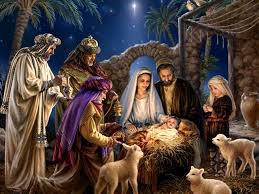
Walking by the elaborate colourful Christmas displays in Rona’s Penticton store last week, I became aware of how differently the season was celebrated by my family when I was a kid. Until I was 5, we lived in a remote, sparsely populated village in rural Manitoba. My maternal grandparents, Abram and Susana Funk lived at the centre. Scattered around them on small acreages were their 14 offspring and numerous grandchildren.
The actual village, Barkfield, consisted of only about half a dozen houses. The road through the community was little more than a dirt trail, wide enough for one vehicle. The Funks travelled mostly on horseback or by horse drawn buggy or sleigh.
Having access to no more than a rudimentary education, the Funks lived uncomplicated lives. Most owned a small flock of chickens, a few cows, several pigs, and one or two horses. They relied on gardens for much of their food. The men, out of necessity, became expert hunters and spent many frigid winter days on horseback, hoping to shoot a deer or moose to feed their families. They were skilled with axes and saws and worked in the bush, making cordwood to sell. The women cooked, baked, tended their garden and raised large families. Without exception their hair was as black as any Mohawk or Cree, and because they worked outdoors so much, their skin was deeply tanned.
Although they possessed little, Grandpa and Grandma Funk gave the children an example of unreserved hospitality, especially in winter when it was most needed. Frequently a traveling peddler knocked on their door, hoping for a bed and a meal, plus hay and water for their horse. These were always gladly supplied.
The lives of the Funks, like many rural Manitobans in the 1930’s and 40’s, were uncluttered by an abundance of income or possessions. There wasn’t much to give. I was about age 3 when I first became aware of Christmas. Mom’s brother and family stayed in our home the night of December 24. Because there were few beds, my cousin Eddy and I slept on the floor. In the morning we were astonished and delighted to discover beside each of us a small metal truck with wheels of pressed paper. Compared to what our grandchildren will receive on the night of the 24th this year it was meager, but it did not occur to us that we were deprived.
Later Mom secretly placed home made cookies, decorated with icing and sparkles, on the snow around our home. We whooped happily each time we found one. Mom, like her siblings, loved snow, family and Christmas. Already as a young boy I sensed her awe and excitement for the season.
For Mom and her siblings, there seemed to be a mystique around Christmas, a magic usually only experienced by children. As a child I caught this for a time but when we moved from Barkfield and the Funk clan to B.C., it began to recede. Now, after many years I’ve become aware of a void in my inner being during this season.
Reflecting back on those early years, I wonder if the Funk family’s excitement and joy at Christmas was possible because they were not exposed to the prosperity and sophistication prevailing in our time. Did this allow for a willingness to embrace the miraculous account of a Messiah born in a stable in Bethlehem, surrounded by sheep and other livestock? For them it was not a great stretch to believe that angels appeared to shepherds tending their flocks in the fields and proclaiming this child was the son of God.
This was all part of my Mennonite upbringing and I recall Christmas Eve scenes depicting Mary and Joseph, the baby Jesus in the stable. The Magi presenting gifts of gold, frankincense and myrrh. There were always angels proclaiming, “glory to God in the highest and peace on earth to all men.”
It seems an unlikely narrative. However, the stylized box store reindeer and unrealistic silver Christmas trees have no power to inspire a sense of wonder in me. Knowing something about the excitement and awe experienced by my forebears, the Funk family, I’m inclined toward the supernatural manger scene account.

This story is a good story.